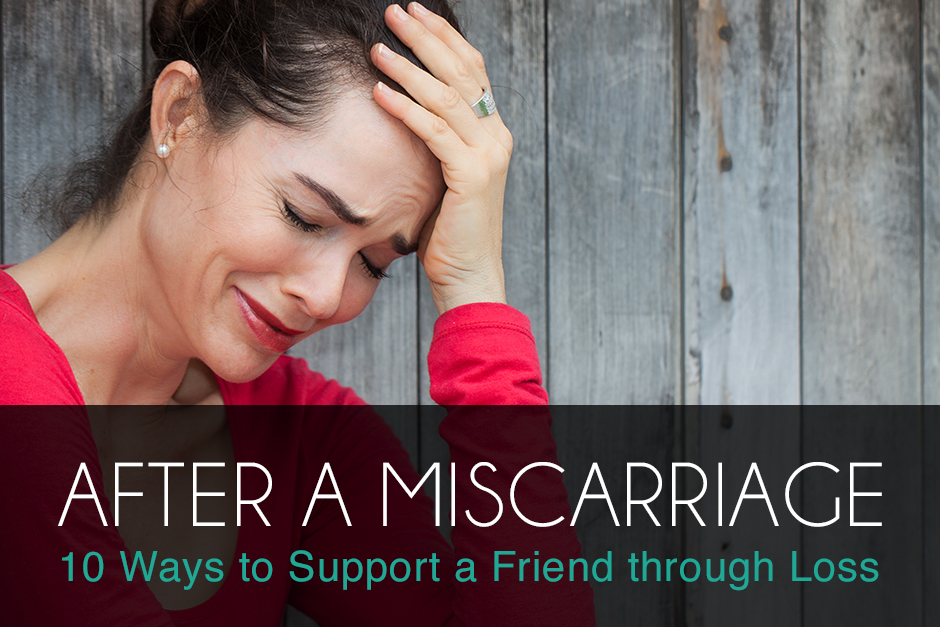
BY ZOE ALDRIDGE
MISCARRIAGES ARE COMMON. According to the Association of Reproductive Health Professionals, 1 in 4 pregnancies end in a miscarriage. Sadly, we all know someone who has experienced this type of tragedy. And many of us know, first-hand, the emotional grief that follows.
A miscarriage leaves a woman with a wide array of emotions: from shock, denial, disappointment, and guilt ... to anger, depression, shame, and despair. But, oftentimes, well- intentioned friends don’t know how to respond. People either say and do the wrong thing, or they don’t say and do anything at all. Here are a few ways to uplift a friend after a miscarriage.
Give Her Permission
Women respond differently to an unsuccessful pregnancy, and they need to know that it’s okay to grieve. Now isn’t the time to show “tough love.” Your friend doesn’t want to hear that she should “stay strong,” “try again,” “look on the bright side,” and “grow from this.” While that may be true, she needs to heal at her own pace. Let your friend know that it’s normal to cry, to be angry, to feel lonely, and to feel whatever she feels. Follow her lead, and give her permission to grieve. Romans 12:15 instructs, “Be happy with those who are happy, and weep with those who weep” (New Living Translation).
Share Wisely
If you’ve had a miscarriage, your friend should know that she’s not alone. But, share sparingly. Her experience will be different from yours, and drawing too many comparisons might be insulting. No one understands how a woman feels after a miscarriage, and it’s hurtful when people assume that they do. James 1:19 advises, “Everyone should be quick to listen, [and] slow to speak” (God’s Word Translation).
Don’t Preach
Ecclesiastes 3:1-8 teaches, “There is a right time for everything” (Easy-to-Read Version) – and that includes preaching. A woman who has suffered a miscarriage needs a friend, not a Bible-thumping preacher. It won’t be soothing to hear, “This was God’s will” or “All things work together for good.” So, unless she requests it, don’t email her a long list of Scriptures. You probably mean well, but your friend needs someone to listen. Give her a safe place to release her emotions, without shame. Let her purge, without judgement. Allow her to say the same things over, and over, and over, and over again, without urging her to move on. Isaiah 49:15 asks, “Can a woman forget her baby? Can she forget the child who came from her body?” (Easy-to-Read Version).
Extend a Hand
When a woman has a miscarriage, everyday tasks can be overwhelming and overlooked. So, if you can, offer a helping hand. Small gestures like watching and carpooling her kids, walking her dog, cleaning her house, doing the laundry, running the dishwasher, and cooking dinner can make a big difference. “Our love should not be only words and talk. No, our love must be real. We must show our love by the things we do” (1 John 3:18, Easy-to-Read Version).
Give Her Space
Some people prefer to be left alone when they’re mourning. They would rather cry out to God in solitude, and work through their emotions on their own. If this applies to your friend, respect her wishes – and don’t take it personally. While giving her some space, you can send your friend an occasional text message. For example, “I know that I can’t fix this, but if you want someone to listen or cry with, I’m here whenever you need me.” Offer your friend the type of support she prefers. Philippians 4:5 prods, “Let everyone see that you are unselfish and considerate in all you do” (Living Bible).







